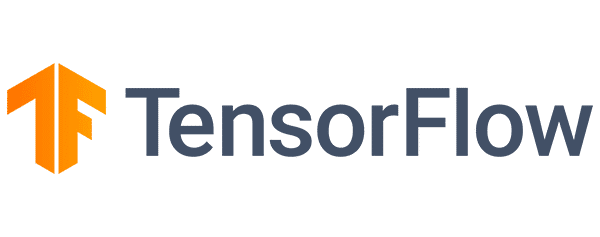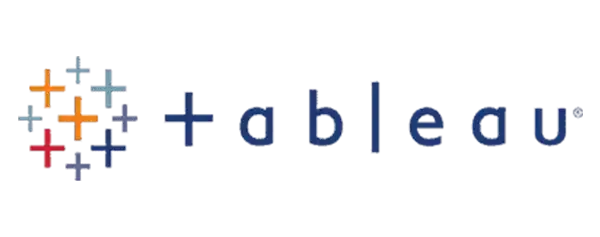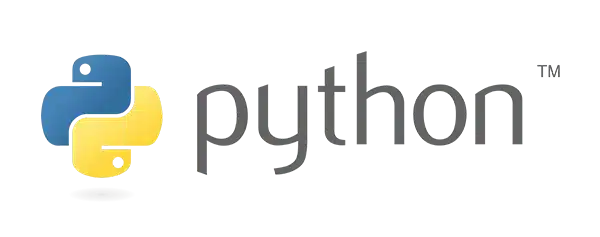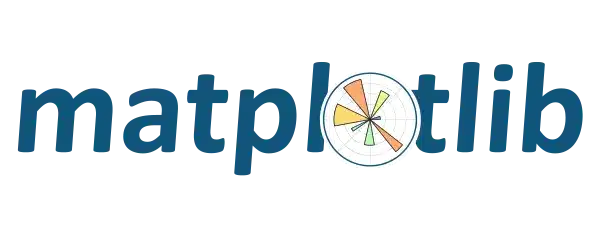World
Class Instructor
1:1 with
Industry Expert
400+
Global Hiring
55%
Avg. Salary Hike
- Overview
- Course Details
- Syllabus
- FAQ
Acquire Key Python Skills: Master Programming, Earn Certification, Launch Your Dev Career!
Elysium Academy has established itself as a leader in Python programming, providing a comprehensive program that ensures participants develop, optimize, and utilize Python applications in ways never before imagined. Elysium Academy has established itself as a leader in Python programming, providing a comprehensive program that ensures participants develop, optimize, and utilize Python applications in ways never before imagined.
2.2
Version
90 Hours
Duration
22 Hours
Theory
68 Hours
Practical
Version
2.2
Duration
65 Hours
Theory
12 Hours
Practical
65 Hours
- Industry Based Projects
- Personalized coordinator.
- Trainer feedback.
- Trainer availability post sessions.
- Get your staff certified.
- Certificate from governing bodies.
- Recognized worldwide
- Hands on assignment
- Master Python fundamentals, including variables, data types, loops, and functions.
- Dive into advanced concepts such as object-oriented programming (OOP) and error handling.
- Harness powerful libraries like NumPy and Pandas for data manipulation and analysis.
- Visualize data effectively using Matplotlib and Seaborn.
- Implement machine learning algorithms with Scikit-learn.
- Explore deep learning techniques with TensorFlow.
Top companies offer this course to their employees
Course was selected for our collection of top-rated courses trusted by businesses worldwide.





Salary
PER ANNUM
₹ 5.5 L
Job Growth
Current Month
20%
Offer Jobs
2026
7,000
The Core & Advanced Python Programmer course offers learners the opportunity to master one of the most versatile programming languages used in software development today. Get started with the dynamic field of Python programming and learn core and advanced Python concepts, including web development, data analysis, and machine learning, with the help of experienced instructors. Learners will emerge prepared to tackle real-world programming challenges. Here are some of the skills you will need to learn if you want to become a proficient Python programmer.
The Core & Advanced Python Programmer course teaches you to master the concepts of Python programming. Through this comprehensive Python training, you will learn data analysis, machine learning, data visualization, web scraping, and natural language processing (NLP).
- Python is the foundation that powers diverse applications from web development to data science.
- Python programming involves the comprehensive development and optimization of software solutions.
- Data Cleaning ensures that the data used for analysis is accurate and relevant.
- Python Developers understand coding principles and derive meaningful solutions to complex problems.
- Python is the substructure on which advanced technologies like Artificial Intelligence and Machine Learning are built.

Our Training Program Benefits
- Live, interactive training by experts.
- Curriculum that focuses on the learner.
- Challenge-based, hands-on project.
- Opportunities for team building.
- Cost- saving training.
- Convenient for your employees.
- Completely tailor-made curriculum.
Chapter-1 Introduction To Script
- What is Script, program?
- Types of Scripts
- Difference between Script and Programming Languages
- Features and Limitation of Scripting
- Types of programming Language Paradigms
- What is Python?
- Why Python?
- Who Uses Python?
- Characteristics of Python
- What is PSF?
- History of Python
- Python Versions
- How to Download and Install Python
- Install Python with Diff IDEs
- Features and Limitations of Python
- Creating Your First Python Program Python Applications
- Printing to the Screen
- Reading Keyboard Input
- Using Command Prompt and GUI or IDE
- Python Distributions
Chapter-2 Different Modes In Python
- Execute the Script
- Interactive and Script Mode
- Python File Extensions
- SETTING PATH IN Windows
- Clear screen inside python
- Learn Python Main Function
- Python Comments
- Quit the Python Shell
- Shell as a Simple Calculator
- Order of operations
- Multiline Statements
- Quotations in Python
- Python Path Testing
- Joining two lines
- Python Implementation Alternatives
- Sub Packages in Python
- Uses of Python in Data Science, IoT
- Working with Python in Unix/Linux/Windows/Mac/Android..!!
- PyCharm IDE
- How to Work on PyCharm PyCharm Components
- Debugging process in PyCharm PYTHON Install Anaconda
- What is Anaconda? Coding Environments
- Spyder Components General Spyder Features
- Spyder Shortcut Keys
- Jupyter Notebook
- What is Conda? And Conda List?
- Jupyter and Kernels
- What is PIP?
Chapter-3 Variables in Python
- What is Variable?
- Variables and Constants in Python
- Variable, Variable names and Value
- Mnemonic Variable Names Values and Types
- What Does "Type" Mean?
- Multiple Assignment
- Python different numerical types Standard Data Types
- Operators and Operands
- Order of Operations Swap variables
- Python Mathematics Type Conversion
- Mutable Versus Immutable Objects
- What is a data type?
- Types of Data types
- Numbers
- List
- Tuple
- Strings
- Dictionary
- Sets
- Lists are mutable
- Getting to Lists
- List indices
- Traversing a list
- List operations, slices and methods
- Map, filter and reduce
- Deleting elements
- Lists and strings
- Advantages of Tuple over List
- Packing and Unpacking Comparing tuples
- Creating nested tuple Using tuples as keys in dictionaries
- Deleting Tuples Slicing of Tuple
- Tuple Membership Test Built-in functions with Tuple
Chapter-4 Dictionary
- How to create a dictionary?
- PYTHON HASHING? Python Dictionary Methods
- Copying dictionary Updating Dictionary
- Delete Keys from the dictionary Dictionary items() Method
- Sorting the Dictionary Python Dictionary in-built Functions
- Dictionary len() Method
- Variable Types Python List cmp() Method
- Dictionary Str(dict)
- How to create a set?
- Iteration Over Sets Python Set Methods
- Python Set Operations Union of sets
- Built-in Functions with Set
- Python Frozenset
- What is string?
- String operations and indices Basic String Operations
- String Functions, Methods
- Delete a string
- String Multiplication and concatenation
- Python Keywords, Identifiers and Literals
- String Formatting Operator
- Structuring with indentation in Python
- Built-in String Methods
Chapter-5 Python operators
- Arithmetic, Relational Operators and Comparison Operators
- Python Assignment Operators Short hand Assignment Operators
- Logical Operators or Bitwise Operators Membership Operators
- Identity Operators Operator precedence
- Evaluating Expressions
- How to use "if condition" in conditional structures
- if statement (One-Way Decisions)
- if.. else statement (Two-way Decisions)
- How to use "else condition"
- if.. elif .. else statement (Multi-way)
- When "else condition" does not work
- How to use "elif” condition
- How to execute conditional statement with minimal code
- Nested IF Statement
Chapter-6 Operators
- What is an operator?
- Different type of operators
- Arithmetic Operators
- Assignment operator
- Unary minus operator
- Relational operators
- Logical operators
- Membership operators
- Identity operators
- How to use "While Loop" and "For Loop"
- How to use For Loop for set of other things besides numbers
- Break statements, Continue statement, Enumerate function for For Loop
- Practical Example How to use for loop to repeat the same statement over and again
- Break, continue statements
Chapter-7 Python Functions
What is a function?
- How to define and call a function in Python
- Types of Functions
- Significance of Indentation (Space) in Python
- How Function Return Value?
- Types of Arguments in Functions
- Default Arguments and Non-Default Arguments
- Keyword Argument and Non-keyword Arguments
- Arbitrary Arguments
- Rules to define a function in Python
- Various Forms of Function Arguments
- Scope and Lifetime of variables
- Nested Functions
- Call By Value, Call by Reference
- Anonymous Functions/Lambda functions
- Passing functions to function
- map(), filter(), reduce() functions
- What is a Docstring?
Lambda Operator, Filter, Reduce, and Map
- Lambda function
- Filter function
- Reduce function
- Map function
Chapter-8 List Comprehension
- Introduction
- Generator Comprehension
- Set Comprehension
- Importing module
- Math module
- Random module
- Packages
- Composition
- Printing on screen
- Reading data from keyboard
- Opening and closing file
- Reading and writing files
- Functions
Chapter-9 Exception Handling
- Exception
- Exception Handling
- Except clause
- Try...finally clause
- User Defined Exceptions
- Match function
- Search function
- Matching VS Searching
- Modifiers
- Patterns
Chapter-10 Packages
Packages
- Predefined Packages
- User Defined
Packages File Handling
- Text Files
- Binary Files
- Zip and Unzip Files
- Pickling
- Unpickling
- Reading Program from another Program In Command Prompt
File Handling
- Python File Handling
- Python Read Files
- Python Write/Create Files
- Python Delete Files
Chapter-11 Object Oriented Programming
- What are Constructors
- Is constructor mandatory in Python?
- Can a constructor be called explicitly?
- How many parameters can constructor have?
- Parameterized and Non-Parameterized Constructors in Python
- Difference between a method and constructor in Python
- Difference between a method and a function
- Types of Class Variables
- Instance Variables
- Where instance variables can be declared?
- Accessing instance variables
- Static Variables
- Declaring static variables
- Accessing a static variable
- Local Variables
- Types of Methods in a Class
- Instance Methods
- Setter and Getter methods
- Class Methods
- Static Methods
- Nested Classes
- Garbage Collection
- Super() Function in Python
- Which scenarios super() function is required?
- Different Approaches for calling method of a specific super class.
- Different cases for super() function
- Polymorphism
- Types of Polymorphism
- Overloading
- Operator Overloading
- Method Overloading
- How we can handle overloaded method requirements
- Constructor Overloading
- Overriding
- Method Overriding
- Constructor Overriding
- What is an Abstract Class in Python?
- Types of Methods in Python based on the Implementation
- How to declare an abstract method in Python
- Abstract Classes in Python
Chapter-12 Exception Handling & Files
Exception Handling
- Types of Error
- Syntax and Runtime Errors
- What is an Exception?
- Exception Handling in Python
Finally Block
- Why do we need Finally Block?
- Finally Block in Python
- Why not 'try except' block for clean-up activities?
- Different control flow cases of try except finally in Python
Nested try-except-finally blocks
- Nested try-except-finally blocks in Python
- Different cases and scenarios
- Else Block in Python
- Possible Combinations with try-except-else-finally
Files
- What is a File?
- Types of Files
- File Modes
- Opening and Closing a File
- Properties of File Object
- Writing data to a File
- Reading data From a File
- With Keyword
Chapter-13 Multithreading
- What is Multitasking?
- Process based and Thread based Multitasking
- Applications of Multithreading
- How to implement Multithreading?
- Different Ways to Create a Thread
- Creating a Thread using Thread class
- Creating a Thread class by inheriting Thread class
- active_count()
- enumerate()
- isAlive()
- join()
- join(seconds)
- Synchronization
- How to implement synchronization?
- Synchronization By using Lock concept
- Synchronization By using RLock concept
- Difference between Lock and RLock
- Synchronization by using Semaphore
- Bounded Semaphore
- What is Inter Thread communication?
- Inter Thread communication by using Event Objects
- Inter Thread communication by using Condition Object
- Inter Thread communication by using Queue in Python
- Types of Queues
- FIFO Queue
- LIFO Queue
- Priority Queue
Chapter-14 Base Communication and Networking
- What is XML?
- Difference between XML and HTML and XML, JSON, Gson
- How to Parse XML and Create XML Node www
- Python vs JAVA
- XML and HTML
- What is Database?
- Types of Databases?
- What is DBMS?, RDBMS?
- What is Big Data?
- Types of data?
- Oracle MySQL
- SQL server
- DB2
- Postgres SQL Executing the Queries
- Bind Variables Installing of Oracle Python Modules
- What is testing?
- Types of Testing and Methods?
- What is Unit Testing?
- What is PyUnit?
- Test scenarios, Test Cases, Test suites
- Socket
- Socket Module
- Methods
- Client and server
- Internet modules
Chapter-15 Packages
- Introduction to numpy
- Creating arrays o Indexing Arrays
- Array Transposition
- Universal Array Function
- Array Processing
- Array Input and Output
- What are pandas?
- Where it is used?
- Series in pandas
- Index objects
- Reindex
- Drop Entry
- Selecting Entries
- Data Alignment
- Rank and Sort
- Summary Statics
- Index Hierarchy
- Data Visualization
- Python for Data Visualization
- Welcome to the Data Visualization Section
- Introduction to Matplotlib
Chapter-16 Data Science
- What is Data Science?
- Data Science Life Cycle?
- What is Data Analysis, Data Mining?
- Analytics vs Data Science
- IMPACT OF THE INTERNET
- What is IOT
- History of IoT
- What is Network, Protocol, smart?
- How IoT Works?
- The Future of IoT
What is the Core & Advanced Python Programmer Course?
The Core & Advanced Python Programmer Course is designed to teach essential Python programming skills, covering both fundamental and advanced concepts to prepare learners for a career in software development.
Who should enroll in this course?
This course is ideal for beginners new to Python programming, as well as professionals looking to enhance their skills and advance their careers in software development.
What are the prerequisites for this course?
There are no specific prerequisites for this course. A basic understanding of programming concepts and an interest in learning Python will be helpful, but not necessary.
How long does the course take to complete?
The course duration varies depending on the individual’s learning pace. On average, it can be completed in 8-10 weeks with a commitment of a few hours per week.
What will I learn in this course?
You will learn the fundamentals of Python programming, including syntax, data types, control structures, object-oriented programming, advanced topics such as multithreading, data manipulation, and web development.
Is there a certification upon completion?
Yes, upon successful completion of the course, you will receive a certification from Elysium Academy, recognized worldwide.
Are there any hands-on projects or assignments?
Yes, the course includes hands-on projects and assignments to provide practical experience. These projects are designed to help you apply the concepts learned in real-world scenarios.
Will I have access to the course materials after completion?
Yes, you will have lifetime access to the course materials, allowing you to revisit and review the content whenever needed.
What kind of support is available during the course?
You will have access to personalized support from a course coordinator, feedback from trainers, and post-session availability of trainers for any additional help or questions.
How can this course benefit my career?
This course equips you with the skills and knowledge to excel in various Python programming roles, such as Python Developer, Data Scientist, and Machine Learning Engineer. It enhances your employability and career prospects in the rapidly growing field of software development.
Course Audio Explanation (தமிழ்)

- Core & Advanced Python Programmer Course Professional
- Duration: 90 Hours
- Level: Beginner
- Days: 90 Days
- Chapters: 16
- Language: English
- Certifications: Yes
- Code: EAPL/PROF/PRTC03
- Course Code: EAPAP
- Sub Category: Programming Development Training Course
Python Programmer Features

Python Fundamentals
Master the core concepts of Python programming, including syntax, data types, and control structures to build robust applications.

Advance Topics
Dive into advanced topics such as multithreading, decorators, and error handling to enhance your programming skills.

Flexible Curriculum
Understand the principles of object-oriented programming (OOP) in Python, covering classes, objects, inheritance, and polymorphism.

Analysis
Harness powerful libraries like NumPy and Pandas for efficient data manipulation, analysis, and visualization.

Frameworks
Learn the essentials of building dynamic web applications using frameworks like Django and Flask.

Assignments
Explore machine learning algorithms and artificial intelligence techniques using popular libraries like Scikit-learn and TensorFlow.
What Will You Learn?










Our Latest Blogs
Best Artificial Intelligence Course to Build Your AI Career
Table of Contents Artificial Intelligence Course is no longer a futuristic concept—it is actively transforming how the world works…
Which Digital Marketing Skills Are Highest-Paying | Top Digital Marketing Course Institute Guide
In today’s fast-evolving digital economy, businesses of all sizes are relying heavily on online marketing strategies to grow their brand,…
AI Powered Digital Marketing Course – 12 Must-Know AI Trends in Digital Marketing
In an increasingly digital world, the demand for smart, data-driven, and automated marketing solutions is rising at a breakneck pace.…
Related Courses
AI Mastery For Entrepreneurs Programme
AI Mastery for Entrepreneurs Programme, designed for visionaries and business leaders. This program focuses on using AI for market research,...
AI Engineering For Developers
Advanced AI Engineering program crafted for developers aiming to build intelligent solutions. This course covers machine learning, deep learning, and...
AI Power Digital Marketing
Unlock the power of online marketing with our Digital Marketing Fundamentals Training Course. Master SEO, SEM, content marketing.

Recommend your friends/colleagues and earn gift vouchers worth up to INR 1000/-!
Invite friends to join our community, and receive valuable gift vouchers as a token of appreciation for each successful referral. Spread the word about our referral program today and start earning rewards!





























